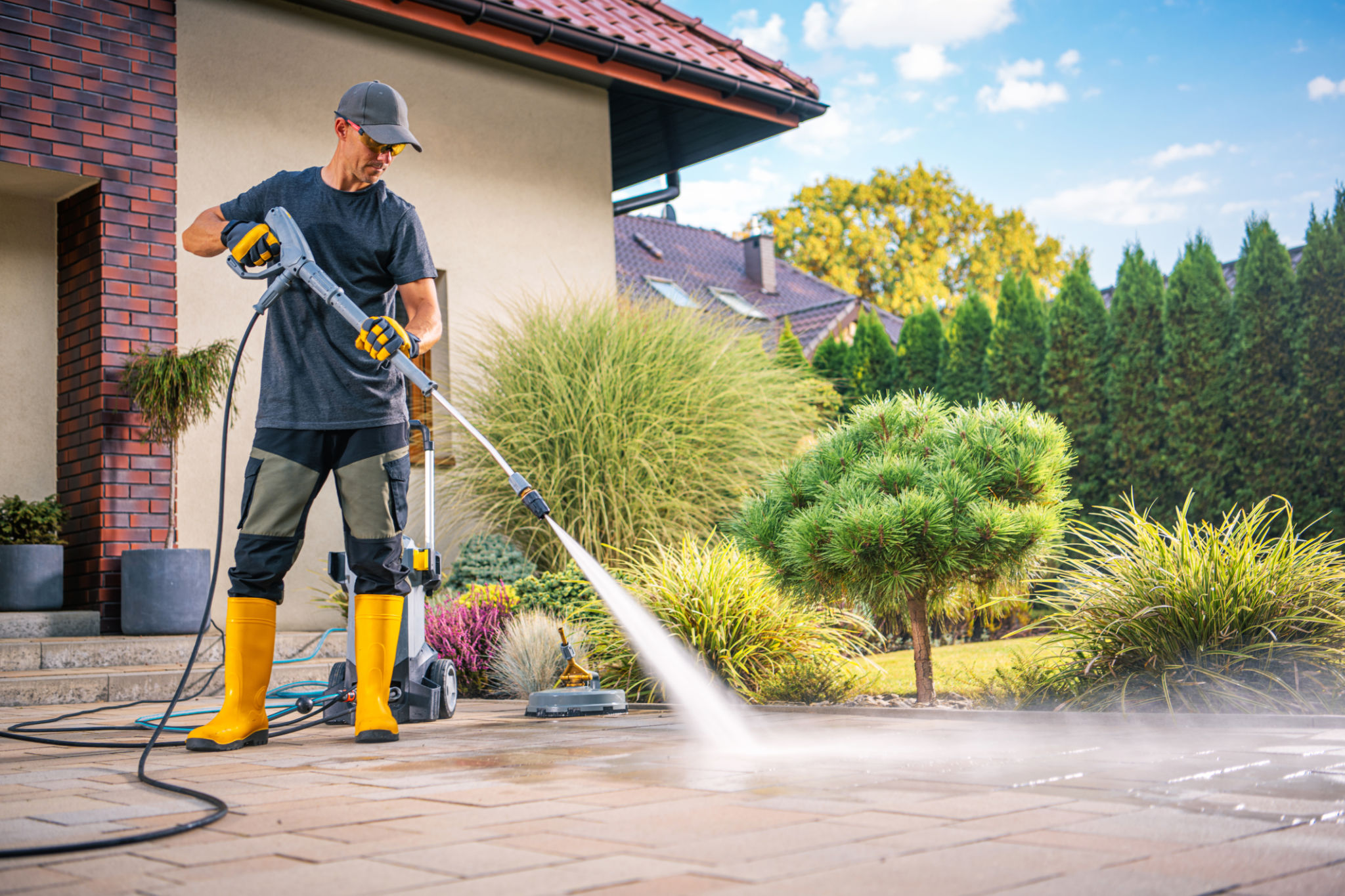Pressure Washing vs. Soft Washing: Which is Right for Your Home?
Understanding Pressure Washing
Pressure washing is a cleaning method that utilizes high-powered water spray to remove dirt, grime, mold, and other debris from surfaces. This technique is particularly effective for hard surfaces such as concrete driveways, sidewalks, and brick walls. The force of the water is measured in pounds per square inch (PSI), and pressure washers typically operate between 1,300 to 4,000 PSI depending on the surface being cleaned.
One of the primary advantages of pressure washing is its ability to clean large areas quickly and efficiently. This makes it an ideal choice for outdoor surfaces that have accumulated years of dirt and mildew. However, the high pressure can sometimes cause damage to more delicate surfaces or older materials that may be weakened over time.

Exploring Soft Washing
In contrast to pressure washing, soft washing uses a low-pressure spray combined with specialized cleaning solutions to safely remove stains and debris. This method is well-suited for more delicate surfaces such as siding, shingles, and painted wood, where high-pressure water could cause damage. The cleaning solutions used in soft washing are designed to break down dirt and organic material, allowing them to be gently rinsed away.
Soft washing not only cleans the surface but also helps to prevent the growth of mold and mildew by removing the spores that cause them. This makes it a great long-term solution for maintaining the aesthetic and structural integrity of your home.

When to Choose Pressure Washing
Pressure washing is often the best choice for areas that are heavily soiled or have tough stains that require more force to remove. This includes:
- Concrete driveways and walkways
- Brick and stone surfaces
- Fences and decks made of durable materials
It's important to note that pressure washing should be performed by experienced professionals who understand how to adjust PSI levels appropriately to avoid damage.

When to Opt for Soft Washing
Soft washing is ideal for surfaces that are more susceptible to damage from high pressure. Consider soft washing for:
- Roof shingles and tiles
- Wooden decks and fences
- Vinyl or aluminum siding
This method not only preserves the integrity of these materials but also ensures a thorough clean without the risk of erosion or chipping.
Environmental Considerations
Both pressure washing and soft washing have environmental impacts to consider. Pressure washing can use a significant amount of water, which might be a concern in areas with water restrictions. Soft washing often uses biodegradable cleaning solutions that are safer for plants and wildlife, but it's essential to ensure these products are environmentally friendly.

Cost Implications
The cost of pressure washing versus soft washing can vary based on several factors such as the size of the area to be cleaned and the condition of the surfaces. Generally, pressure washing may be less expensive due to its quicker application on large areas, while soft washing might require more time due to its detailed approach and use of specialized solutions.
Ultimately, choosing the right method depends on your specific needs and the type of surfaces you need cleaned. Consulting with a professional cleaning service can provide valuable insights tailored to your home's requirements.